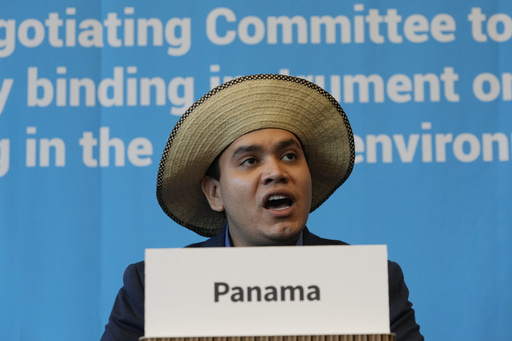
Negotiations aimed at establishing a treaty to combat plastic pollution have wrapped up in Busan, South Korea, but no agreement was reached. This event was intended to be the fifth and final round of discussions aimed at finalizing a legally binding accord to tackle plastics pollution, including that which affects marine environments, by the end of 2024.
Following a week of intensive discussions and with time running out on Monday morning, delegates agreed to reconvene next year, although specific plans have yet to be confirmed. This round of talks marked the largest gathering of the Intergovernmental Negotiating Committee on Plastic Pollution, bringing together over 3,300 participants, including representatives from more than 170 countries and roughly 450 organizations.
As the meeting came to a close, INC Executive Secretary Jyoti Mathur-Filipp emphasized the urgency of the situation, stating, “We have tested the resilience of our planet to its limit. Now is the time for us to push our own limits and honor the trust placed in us.”
One of the primary points of contention during the discussions involved the potential for limiting overall plastic production. Panama suggested a proposal in the treaty addressing this issue, which quickly garnered support from over 100 nations. However, the proposal did not set a specific production cap but instead called for nations to adopt a global target in a future conference.
Juan Carlos Monterrey, who led Panama’s delegation, expressed confidence that despite delays, countries advocating for a robust treaty would not be deterred. Ana Rocha, who oversees international plastic policy efforts at the Global Alliance for Incinerator Alternatives, acknowledged that various nations united effectively to assert their commitment, declaring it a pivotal moment in their fight against plastic pollution.
Conversely, environmental groups and indigenous representatives voiced concerns over the limited transparency during the negotiations. Most discussions were conducted behind closed doors, restricting opportunities for observers to contribute constructively to the treaty’s development. The International Indigenous Peoples Forum on Plastics expressed deep disappointment with how the proceedings unfolded, criticizing the draft treaty for marginalizing Indigenous voices and failing to protect their rights.
Despite the lack of an agreement, there is optimism that negotiators will reach a consensus at the next meeting. U.N. Environment Program Executive Director Inger Andersen remarked that every delegate she spoke to expressed support for establishing the treaty. “We may close this session today, but the world will still be watching tomorrow,” she noted. “And the plastic pollution will still be arriving on our shores, and so our work will continue.”
Fiji’s environment and climate change secretary, Sivendra Michael, urged that the momentum should not be lost, advocating for a treaty that would serve as a longstanding legacy, embodying their dedication to the planet and future generations.
